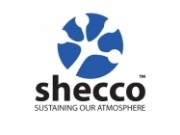Case studies from Bitzer, McAlpine Hussmann, Woolworths Engineering Services, AJ Baker & Sons, MHI Australia and Mayekawa Australia will be presented at ATMOsphere Australia 2017 in Sydney.

The ATMOsphere Review Panel is pleased to announce the first round of case study selections for ATMOsphere Australia 2017 on 2 May in Sydney.
Bitzer, McAlpine Hussmann, Woolworths Engineering Services, AJ Baker & Sons, MHI Australia and Mayekawa Australia will discuss their innovative natural refrigerant-based technologies at the conference.
A second round of case studies selected will be announced over the coming weeks.
Bitzer: Efficiency gains of a booster system with parallel compression by Ian Suffield
This case study aims to provide an overview of the possible increases of overall system efficiency to a booster system featuring parallel compression by optimising the operational pressures within the parallel compression stage. BITZER Germany, in partnership with CAREL, have developed a control package that includes specifically designed algorithms to provide this energy saving feature without the end user having to undertake complex programming themselves.
McAlpine Hussmann: Hussmann– NZ & AU, CO2 and the journey thus far by Brian Rees
This presentation will share insights of Hussmann – NZ & AU’s journey from HFC refrigerants to natural refrigerants with a focus on secondary cascade CO2 initially and evolution to transcritical CO2 and full natural solutions. This presentation will share insights and key numbers that clearly signal that CO2 acceptance has been significant in NZ within the supermarket sector in particular, and leveraging these learnings will ease-the-transition for other refrigeration users.
Woolworths Engineering Services: Woolworths’ investment in the Australian industry to deliver sustainable HFC-free refrigeration innovation by Dario Ferlin
Woolworths, one of the leading retailers in Australia, has been a principal actor in the local refrigeration industry to show leadership: the company took the first uncertain but courageous step away from commonplace R404a systems by opening its first cascade R134a/CO2 store. However, the time has come to give serious consideration towards very low HFC or HFC-free systems. Woolworths has taken another bold step to pilot two promising technologies in 2017. Specifically a low-HFC WaterLoop store in Collings Square Melbourne and a HFC-free transcritical CO2 system at Colebee in Sydney.
AJ Baker & Sons: Transcritical CO2 and Australian supermarkets - A reality by Michael Baker
The major drivers for transcritical CO2 are to reduce/eliminate the need for HFC refrigerants, reduce the overall GWP of systems and to provide energy savings to the supermarket owner. The paper will outline the high level system design, the different methods of controlling gas cooler outlet temperature, operational observations of energy efficiency and the road ahead.
Major achievements have seen the steady development of gas cooler outlet temperature control move from an HFC subcooler through to a hydrocarbon subcooler with some projects now solely relying on adiabatic high pressure water atomisation or evaporative cooling. Critical to the success of transcritical CO2 systems are the advances in the display cases that are the front end of the system. Optimising evaporator coil design and the use of doors on multi-deck cabinets provide the necessary platform to realise these increases in energy savings.
MHI Australia: Introduction of commercial CO2 heat pump in Australia - Case study from North Queensland
The presentation will cover the new deisgn at a five star Hotel Resort located in tropical North Qld. The exisitng system consisting of a bank of 27 heat pumps with R134 refrigerant and a bank of five LPG instantaneous gas water heaters has been replaced by Q-ton CO2 technology, comprised of of 4 x Q-ton units with ten thousand litres in storage tanks.
The discussion will cover a combination factors that have a dramatic effect on the resort's operating costs, not only in the short term future but for the decades to come.
Mayekawa Australia: Natural refrigerant NH3/CO2 cascade freeze dry application in New Zealand presented by Martin Millow
This presentation will report on the application and operation of an NH3/CO2 cascade system used on an industrial freeze drying application. This low charge NH3 system combined with a subcritical CO2 liquid recirculation system, offers energy efficiency and an environmentally sound solution in a low temperature industrial application.
